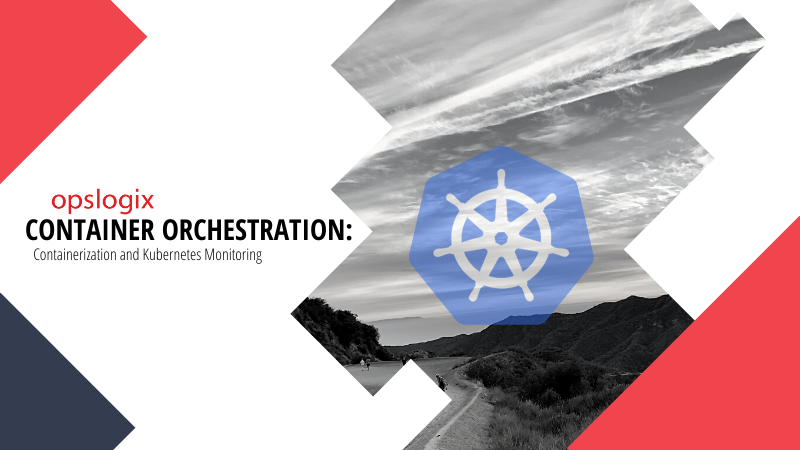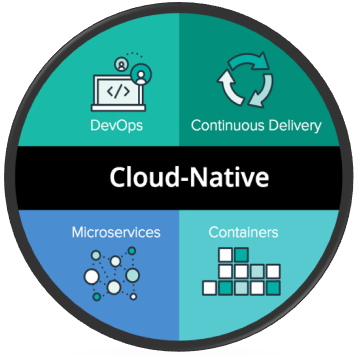Containerization and Kubernetes Monitoring
by Opslogix, on Feb 1, 2022 2:00:00 PM

As cloud-native solutions are gaining recognition and becoming a common approach to developing applications, more attention has been directed towards container orchestration and Kubernetes. Both concepts within the realm of IT have been around for a while. Thanks to the technologies' maturing and cloud adoption, they've recently gained significant attention.
We all know that software containers are far from traditional shipping containers, yet they function similarly: they standardize and combine. A shipping container combines goods transferred from one mode of transport to another and standardizes the logistic process; a software container combines all necessary components for an application to run across various computing environments.
Containers and a cloud-native approach
Containers consist of all components that an application needs to run over several environments, such as a test environment in a laptop to a public cloud. Because containers allow for a straightforward way to manage applications across environments, they are considered essential for organizations when taking a cloud-native approach.
What characterizes a cloud-native approach is taking advantage of the benefits of the cloud, such as resilience, flexibility, scale, and elasticity.
Containers are isolated bundles of all the required components of an application. This includes the application and configuration files, settings, dependencies, and libraries.

The cloud-native approach stems from high application performance requirements and logged software changes to fast troubleshooting resolution for a lower cost.
For applications to become cloud-native, containers are crucial as they allow for (application) object compartmentalization. This, in turn, ensures efficiency, speed, the ability to change and update the software with little effort, all while still retaining scalability and portability.
Containers and Kubernetes
Container orchestration refers to the automation of the operations related to running applications based on containers at a large scale. Kubernetes is, since 2014, an open-source orchestration platform allowing for the automation and management of containerized applications.
IT orchestration is an extension of automation as it involves the automation of multiple systems or tasks. An orchestration platform, like Kubernetes, is the tool that enables container cluster management throughout the container lifecycle.
Kubernetes provides system load balancing and in-built failover checks. This is, however, only one of the things Kubernetes does - learn more about the platform and its advantages here, and sign up for news about our upcoming Kubernetes Management Pack!
Monitoring and Containerization
When monitoring containers, Kubernetes increases the resilience and efficiency of applications built on containers. It does this by monitoring the 'Golden Signal metrics':
- Latency
- Traffic
- Errors
- Saturation
Monitoring containers have the same objective as any other application - look at performance metrics and ensure everything is running as expected. However, because of container structure, this is more complex to do than monitoring applications and objects running on, for example, bare-metal servers.
Monitoring containers does not rely on one single technique; rather, it is a collection of several metrics that improve visibility within the microservice architecture. This architecture loosely implies that connected services run inside containers rather than a monolithic, more traditional application building.
Instead of monitoring a single container, Kubernetes monitoring focuses on clusters of containers through Control Plane metrics, Pod availability\utilasation, and Node status. Learn more about the upcoming OpsLogix Kubernetes Management Pack.
Monitoring can be drilled down to node-level monitoring such as physical OS, hardware status, disk space, and CPU load. This continues through to the container level itself, where the application metrics can also be collected.
Compared to host-centric application monitoring, containerization increased the need to monitor the orchestration platform, with Kubernetes adding the extra monitoring layer.
In the "Press Release: Kubernetes Management Pack Announcement" we informed about the upcoming release of OpsLogix Kubernetes Management Pack. To find out more about how we can support the monitoring of your Kubernetes platform sign up for more Kubernetes updates or contact sales.




